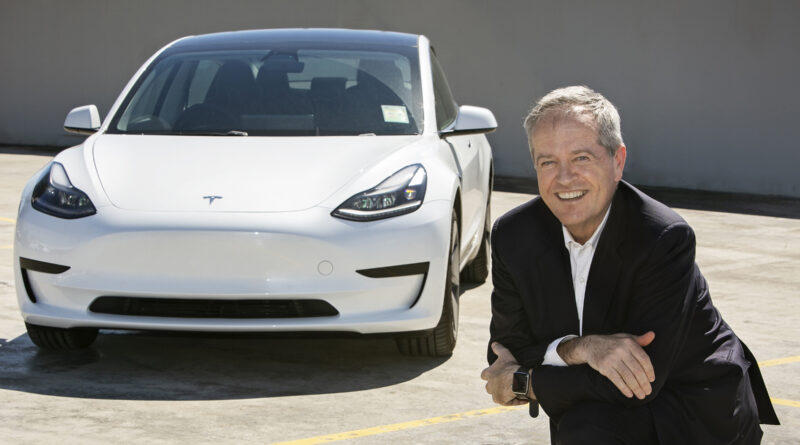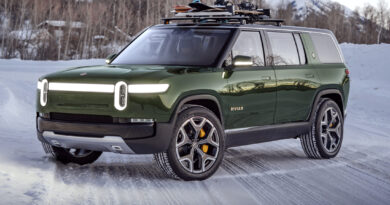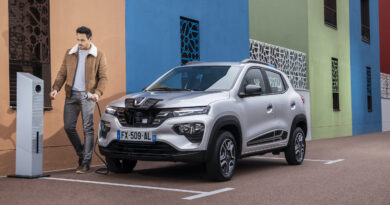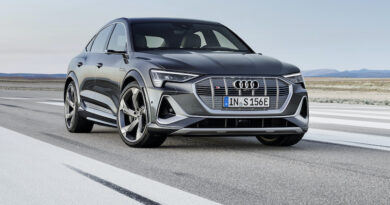Getting a Tesla Model 3 took some negotiation for Bill Shorten
How many of our 226 Australian MPs would you guess have chosen an electric vehicle as their Commonwealth-provided car? Sure, “none” would have been a reasonable guess – especially considering there aren’t any on the list of cars they are officially allowed to choose from – but there is in fact just one: Bill Shorten and his Tesla Model 3.
It’s fair to say that if the former Labor leader and coulda-been PM had hit the campaign trail back in 2019 in a Tesla it would have been a big story, and a huge awareness-raiser for electric vehicles, but still, better late than never.
It’s also safe to assume that had he done so he would have been mocked mercilessly by our actual Prime Minister, Scott Morrison, and the rest of the climate deniers who suggested he was trying to fatally electrocute the Aussie weekend with his pro-EV policies.
Despite any suggestion that his climate-friendly approach, and attempts to raise the number of electric vehicles on our roads by 2030, might have helped cost him the job he so coveted, Shorten’s choice of a Tesla shows that he’s not backing down, and that, as he says, he’s “the first politician to really practice what I preach”.
“I do believe that electric cars are part of our future. I took policies which I didn’t think were radical to the last election, but they were lampooned by elements of the right-wing media and the Prime Minister as ‘the death of the weekend’, but that sort of ignorance has been shown to be rubbish by the fact that Joe Biden, two years after me, announced a practically identical policy,” Shorten tells EV Central.
UPDATED: Tesla Model 3 updated for November 2021: longer range but slower 0-100km/h time
READ MORE: Australian politicians strugggling to see the EV light
EXCLUSIVE TEST: China-made Model 3 Standard Range Plus versus USA-built Model 3 SR+. We test range, performance, efficiency, weight, charging time and more
“I announced our policy in March of 2019, and Biden announced his in the second quarter of 2021, we could have been two years ahead of the Yanks.
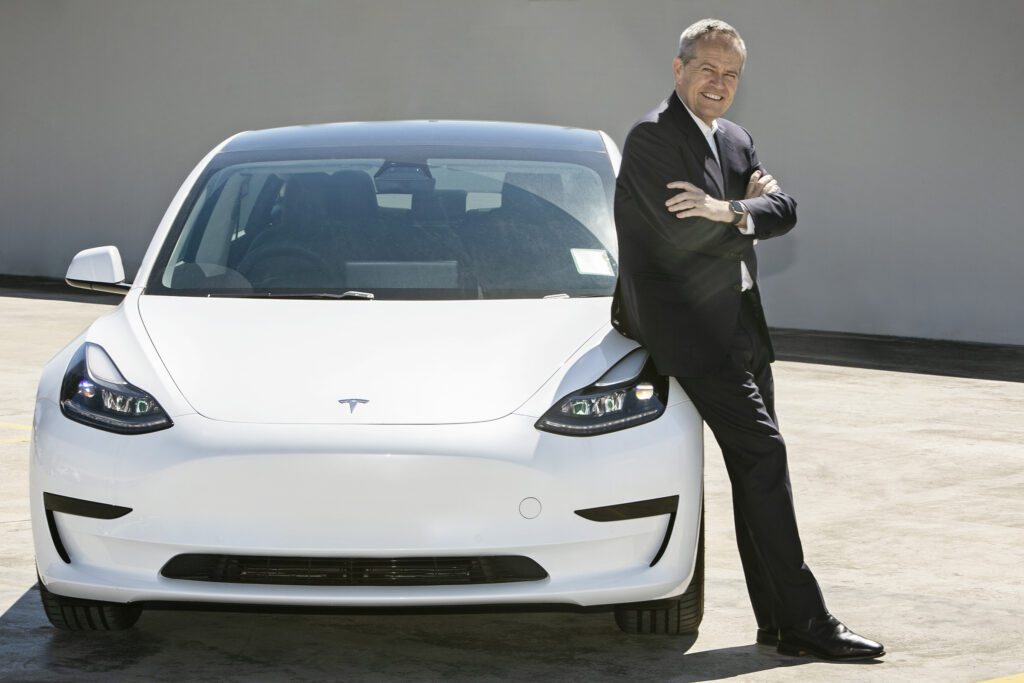
“All I proposed was to put polices in place to see half of all our new car sales be EVs by 2030, so we could have been much further along that road.
“I think Morrison is learning the hard lesson of life, that you can lie to people once, but you’re very unlikely to get a second chance. And the simple fact is that he did lie and exaggerate about electric vehicles.
“The world doesn’t wait for Australia, so every time we make a decision to stand still we drop further back, and it becomes harder to claw back again.”
FULL REVIEW: Tesla Model 3 Standard Range Plus
Speaking of the right-wing media, was Shorten thrilled to hear recently that News Ltd has decided that climate change is real and that its many media organs are getting on board with the idea that governments should do something about it?
He gives a deep, deep sigh, and says: “I wouldn’t have minded if that change had happened before the last election and the nation wouldn’t have wasted another two years on doing nothing.
“We won’t be ready when the rest of the world goes electric. It does frustrate me when you can see what’s going to happen but the government keeps telling people no, you don’t have to prepare for tomorrow.”
EV debate like argument between mobiles and landlines
Shorten provides us with just one of his famous zingers in relation to the EV discussion – “it’s like we’re having an argument between landlines and mobile phones” – before throwing a bit more topical inventive at the government:
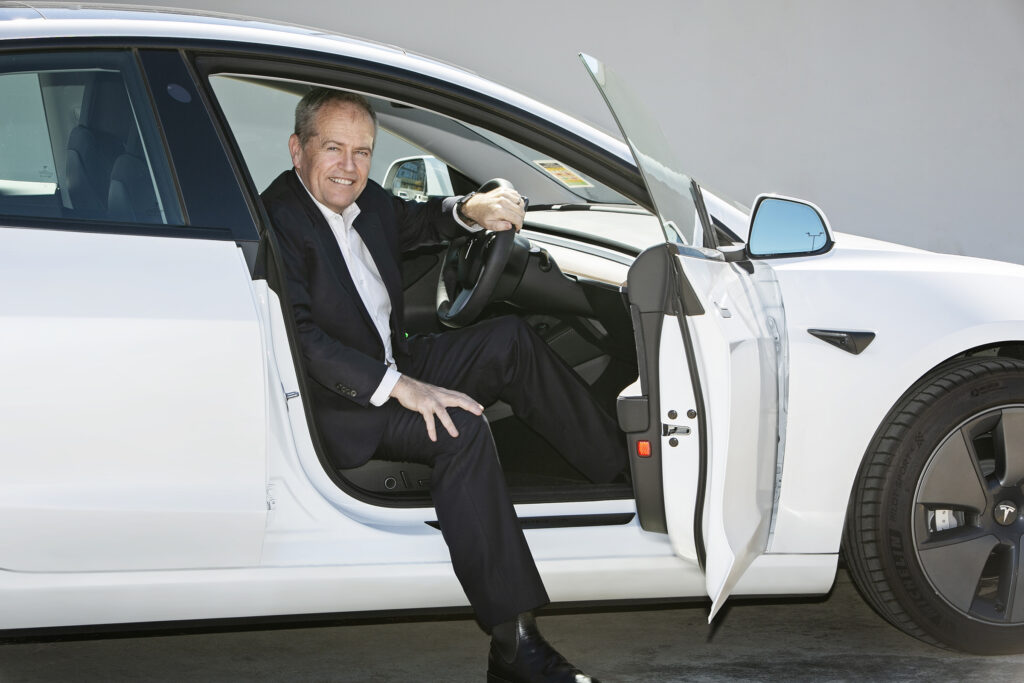
“It’s funny, the Morrison government wants to make us globally leading edge in submarine technology, at a cost of $100 billion, but it gets in the way of Australians getting access to economical and environmentally sustainable motor cars.”
But Bill is also very happy to rave about his Tesla Model 3 Standard Range Plus, the $59,900 (plus on-roads) entry to the range, which is leased for him, and which took quite some negotiation to get as it was not on the approved list of cars for MPs. Not only did he fall in love with it on his very first test drive, but his family love it – particularly his children – and he’s constantly being stopped in the street by constituents who want to ask him about it, which then generally leads to a discussion about how much they’d like to buy an EV.
This has led Shorten to suggest that the community, the average punters, are way ahead of the government on the part that EVs have to play.
He’s also been thrilled and delighted to realise how much money he’s saving us, the taxpayer, by going electric. His office has calculated that it’s saving him, and thus us, $3840 in fuel bills a year (the car costs $58 a month to charge, his previous vehicle, a Mazda CX-9, was using $378 a month of fuel).
And when he charges up at home, he’s using his solar system to get “free, green electricity, and how’s that not good for the taxpayer? And I’m not relying on fossil fuels, it’s remarkable”.
Value in EVs is in reduced running costs
Strangely, though, Shorten isn’t hugely in favour of the kind of financial incentives that other countries have used to increase EV take-up beyond our woeful circa-one-per cent.
“I think the value is there, whether or not your need to go that extra step with incentives,” he says. “I think once people realise what they’re going to save on their petrol bills, I think that’s a pretty good incentive. I hadn’t realised until I started driving one.
EV RUNNING COSTS: The real cost of owning and running an electric car in Australia
“I get that EVs are still a middle class sort of proposition, but while we remain an automotive backwater, cheaper EVs just aren’t coming here. And there are cheaper EVs elsewhere in the world.”
So, turning to the bigger issue, why does Shorten think so many people, not just the rabid right wing and the Barnaby Joyces, struggle with the idea of global warming, and doing something about it?
“I think it’s a fear of change and maybe also people don’t understand, they worry about their cost of living and they worry about the impact on jobs,” he muses.
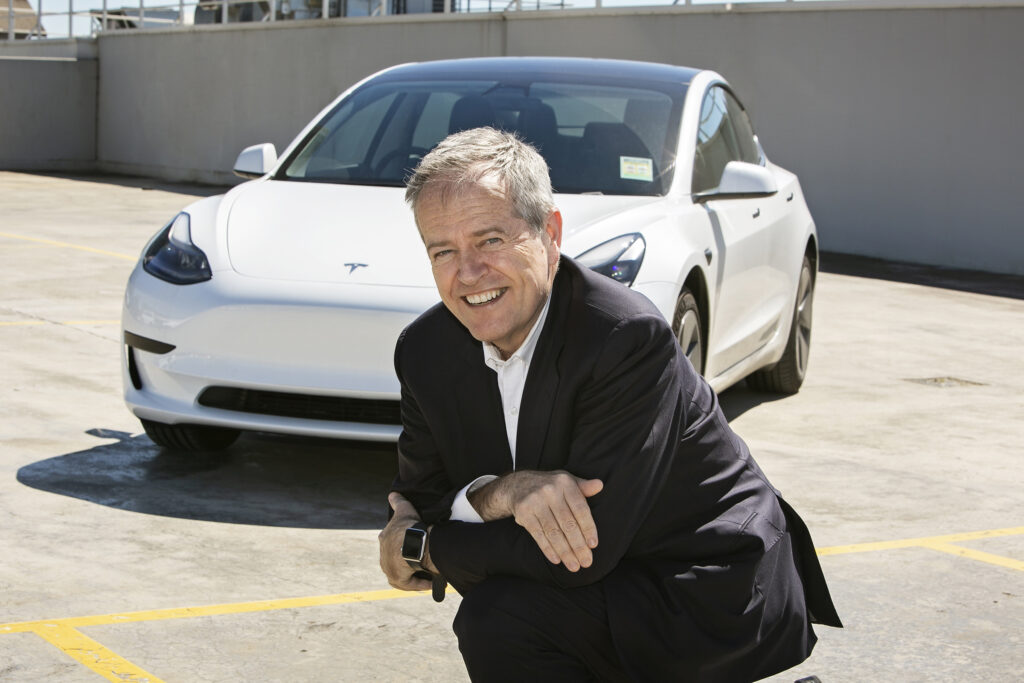
“So I think the challenge is to explain how adapting to climate change is going to be good for your cost of living, and good job policy too. Unfortunately, elements of the political debate for the past decade have managed to say ‘you’re either for the environment or you’re for jobs’, and of course that’s a false binary.”’
Australia’s role in the EV world
And how would it be good for jobs in this big, natural-energy rich country of ours? Well, we could get involved in building cars again, for a start, or we would if it was up to Shorten.
“I was a big fan of the Australian car industry, but it’s gone now, so the question is, what can we add into the global supply chain of vehicles?” Shorten asks.
“I think also we need to have the conversation about what we can build here. I think electric vehicles offer us the chance to do more manufacturing here.”
Would Australia be in a different place as far as EVs and climate policy go if Bill Shorten had been voted in as Prime Minister? Clearly, yes.
But it’s important to remember that this is the choice the nation made. As the great denier Andrew Bolt said, back in 2019: “Labor and the Greens called this ‘the climate change election’. They were right. And, great news, they lost.”

